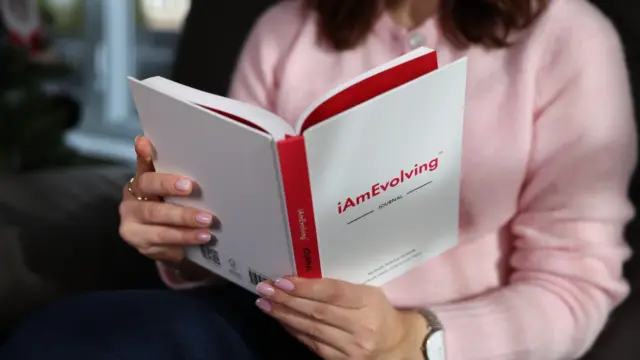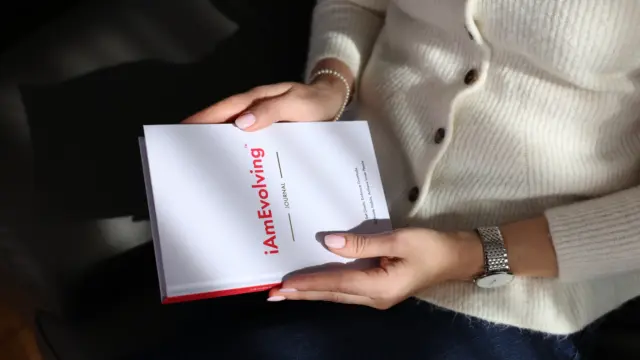We’ve all been there — those moments when something doesn’t go as planned. A project fails, a relationship ends, a risk backfires, or life simply takes a turn we didn’t expect. When that happens, our confidence often takes the hardest hit. We start questioning our worth, our abilities, and even our direction.
But confidence isn’t something that disappears forever. It’s not lost — just buried under layers of disappointment, fear, and overthinking. With the right approach, you can rebuild it, stronger and more grounded than before.
This post will guide you through practical ways to restore your confidence after setbacks — not through forced positivity, but through awareness, self-compassion, and steady action.
1. Understand What Really Shattered Your Confidence
The first step is honesty. A setback hurts not just because something went wrong, but because it clashes with how we see ourselves.
Maybe you believed you were strong enough not to fail. Maybe you thought you finally had things figured out. Or maybe you tied your sense of worth to the outcome — the job offer, the sale, the approval.
When things fall apart, the mind immediately translates it into “I’m not good enough.”
But the truth is, confidence doesn’t come from never falling — it comes from how you rise after you do. If you need a grounding reminder, read Finding Stillness in a Busy World — a cornerstone guide on finding peace when life feels unstable.
Take time to unpack the event. Ask yourself:
- What specifically made me feel less confident?
- Was it the result itself or how I interpreted it?
- Did I expect perfection instead of progress?
Journaling helps make this process clear. Writing down the chain of thoughts often reveals how much of our self-doubt comes not from failure, but from self-criticism.
2. Separate Self-Worth From Achievement
One of the biggest traps after a setback is believing that your value depends on your success.
But your worth doesn’t fluctuate with your wins or losses. It’s constant — even if you forget that.
Confidence built only on achievement is fragile. It crumbles the moment something goes wrong. But confidence built on self-acceptance — on knowing that you’re still whole even when things break — that’s unshakable.
Try this perspective shift:
Instead of asking, “Why did I fail?”, ask, “What did this teach me about myself?”
Every challenge reveals something — maybe resilience, creativity, or patience you didn’t realize you had. You can explore this deeper through Understanding Inner Harmony: The Balance Within, a cornerstone post about staying balanced while you grow.
That discovery becomes the foundation of authentic confidence — one that doesn’t rely on external validation.
3. Reconnect With Your Strengths
After a setback, your mind tends to focus on what went wrong.
You replay the mistake, analyze the flaw, and forget about the hundred things you’ve done right.
This is when you need to intentionally balance the scale.
Write down three things you’re proud of — not huge accomplishments, but moments where you showed courage, kindness, or persistence.
Maybe you kept going when it was hard. Maybe you helped someone even when you were struggling yourself.
Those moments count more than you think.
Confidence grows from evidence — and you already have plenty. You just need to remind yourself.
4. Start Small and Rebuild Momentum
When confidence is low, starting over feels overwhelming.
That’s why it’s important to begin small — with actions that create progress, not pressure.
Start with something you can control:
- Wake up and make your bed.
- Go for a walk without your phone.
- Write one paragraph in your journal.
- Send one email you’ve been putting off.
Each small win sends a message to your brain: I’m capable. I’m doing something. I’m moving forward.
Momentum matters more than speed. It’s the consistency that rebuilds trust in yourself. To stay consistent, read The Power of Daily Habits: Build the Life You Want.
And if you use the iAmEvolving Journal, you already know the power of small daily actions — setting a single goal, expressing gratitude, and nurturing habits that slowly rebuild your mindset from within.
5. Replace Harsh Self-Talk With Honest Compassion
It’s easy to be kind to others but cruel to ourselves. After a setback, the inner critic gets loud — “You should’ve known better,” “You’re not cut out for this,” “You always mess up.”
But imagine if you spoke to a friend that way.
Would they feel encouraged or defeated?
Your self-talk shapes your recovery. Speak to yourself the way you would to someone you love — with honesty, but also with compassion.
Try writing down one phrase you’ll tell yourself when self-doubt appears. Something like:
- “This is part of the process.”
- “I can try again.”
- “I’m learning — not failing.”
Confidence grows in environments of encouragement, not judgment. Be that environment for yourself.
6. Reflect on What You Can Control
Setbacks often make us feel powerless, but there’s always something within your control — your effort, your attitude, your next choice.
When you identify what’s still yours to influence, you shift from victim mode to active mode.
Ask yourself:
- What can I improve next time?
- What can I let go of?
- What would I do differently with what I now know?
Rebuilding confidence isn’t about denying the loss. It’s about accepting what happened, learning from it, and turning the experience into wisdom.
That’s what evolution looks like — and it’s exactly what your journey with the iAmEvolving Journal represents: transformation through awareness.
7. Redefine What Success Means to You
Many people lose confidence not because they failed, but because their definition of success was unrealistic.
Maybe you thought success meant constant progress or flawless results. But growth is cyclical — you advance, you pause, you fall, and then you rise again, each time wiser.
Take a moment to redefine success for yourself.
Maybe success means consistency instead of perfection.
Maybe it means staying true to your values instead of chasing approval.
When your definition of success becomes more authentic, confidence naturally follows.
8. Use Journaling as a Mirror, Not a Scoreboard
Journaling isn’t about keeping track of achievements — it’s about understanding yourself.
Each time you write, you reconnect with your inner voice — the one that gets buried under noise, expectations, and comparison.
Here’s a simple reflection exercise you can use:
- Write down one setback that affected you deeply.
- Next, describe what it revealed about your values, strengths, or boundaries.
- Finally, write how you’d like to approach a similar situation differently next time.
This process turns failure into self-knowledge — and that’s the purest form of confidence.
If you’re using the iAmEvolving Journal, you already have space dedicated to daily goals, gratitude, and inner harmony — a structure that helps you stay grounded while your confidence grows back.
9. Surround Yourself With the Right Energy
Confidence doesn’t rebuild well in isolation. You need environments that uplift you — not drain you. Spend time with people who remind you of your strengths, not your weaknesses. Limit contact with those who make you doubt your worth. What you consume — conversations, social media, even music — affects your mindset more than you realize. If you want to evolve, curate your environment like you would your habits. Choose what feeds your growth. You may also enjoy Finding Stillness in a Busy World for insight on protecting your inner calm.
You need environments that uplift you — not drain you.
Spend time with people who remind you of your strengths, not your weaknesses.
Limit contact with those who make you doubt your worth.
What you consume — conversations, social media, even music — affects your mindset more than you realize.
If you want to evolve, curate your environment like you would your habits.
Choose what feeds your growth.
10. Embrace the Journey of Becoming
Rebuilding confidence after setbacks isn’t a quick process. It’s a journey — one that teaches patience, humility, and resilience.
You don’t have to rush. You don’t have to prove anything. You just have to keep showing up — one step, one thought, one page at a time.
Confidence isn’t about being unshakable — it’s about trusting yourself enough to rise again.
And every time you do, you become a little more aligned with who you truly are.
Final Thought
Setbacks are not the opposite of growth; they are part of it.
Each one holds a lesson, a chance to rebuild stronger, clearer, and more grounded in who you are.
If you’re ready to turn your setbacks into strength, take a few quiet minutes today and write about where you’ve been, what you’ve learned, and what you’re ready to believe again.
Because the moment you choose to start over — that’s when you begin evolving again.
Confidence is not rebuilt through perfection, but through patience — each moment you choose to try again strengthens the trust you have in yourself. Every setback becomes a quiet reminder of your resilience and your capacity to grow beyond what once limited you. Continue exploring how self-awareness and identity shape your confidence and evolution in Self-Awareness & Identity.



